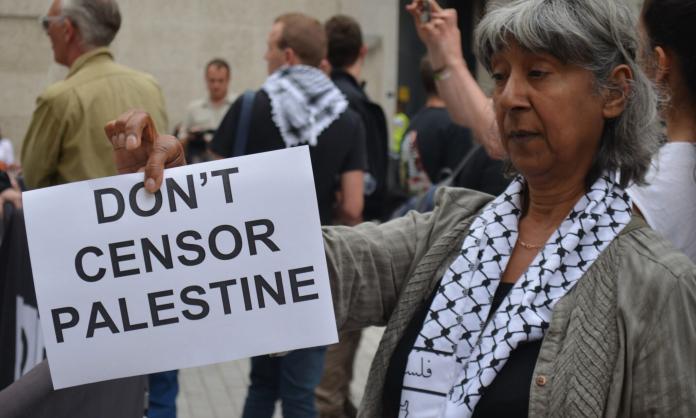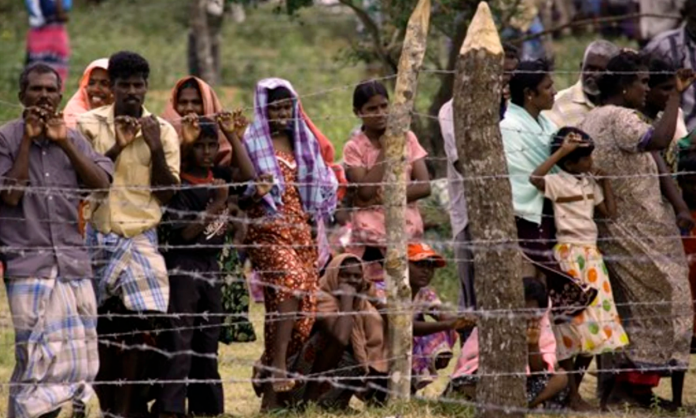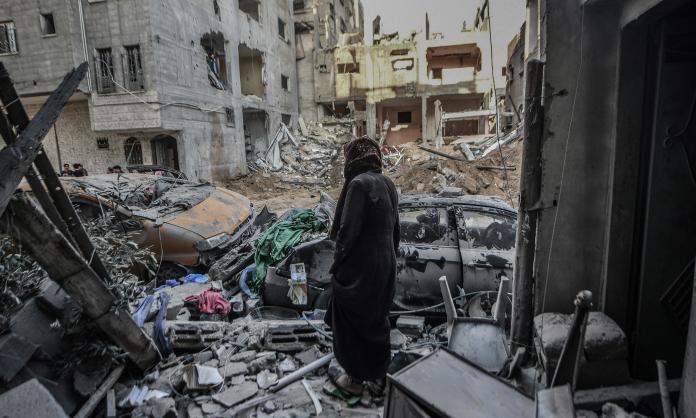Conservatives and right-wingers rarely miss an opportunity to present themselves as victims of political persecution by the supposedly censorious, intolerant, if not downright totalitarian, left. Yet the latest war on Gaza is once again showing that those most vulnerable to “cancel culture” are pro-Palestine voices.
Nowhere is this more evident than in the US. Radhika Sainath, a senior attorney for the American advocacy organisation Palestine Legal, recently told Jewish Currents’ Alex Kane that Palestine advocates are facing nothing short of an “immense McCarthyite backlash and suppression”, more intense than anything that has come before.
University campuses are at the centre of this wave of political repression. Students and staff members supporting Palestinian rights have faced physical attacks and death threats. Palestine solidarity activists from the University of California, Los Angeles, have reported that Zionists disrupted a teach-in on the situation in Palestine, physically assaulting attendees and threatening to “rip their fucking head off”. When activists at Brooklyn College gathered to show their support for Palestine, a local pro-Israel council member turned up brandishing a gun.
Those who have expressed support for Palestine in words have not fared any better. In a statement published on 10 October, 34 individuals and student groups at Harvard University condemned Israel as a violent apartheid regime that has forced Palestinians “to live in a state of death, both slow and sudden” for 75 years. For this, they have been denounced by the university, condemned by politicians and are being blacklisted by employers. Some students have had job offers rescinded.
Many have also had their names, pictures and addresses released publicly, both to intimidate them and to make them targets of violence. In response to the Harvard students’ statement, the conservative group Accuracy in Media sent trucks to Harvard Square, displaying pictures of individual students who signed the statement, and labelling them “Harvard’s leading antisemites”.
In a statement published in response to the escalating repression of Palestine advocates, the National Students for Justice in Palestine noted: “While the Palestinian people are being unjustly massacred, we are expected to stay silent”. But when “expectation” is enforced by the various reprisals suffered by those who speak out for Palestine, it is more accurate to call it coercion.
The intimidation of voices critical of Zionism or the practices of Israeli governments has a long history. Jewish scholar Noam Chomsky noted in The Fateful Triangle, published in 1983, that discussions about the nature of Israeli society, the Arab-Israeli conflict and US support for Israel had, since 1967, become “difficult or impossible in the United States as a result of a remarkably effective campaign of vilification, abuse, and sometimes outright lying directed against those who dared to question received doctrine”.
In the 21st century, the atmosphere has become even more censorious. Matthew Abraham, himself a target of a hysterical Zionist cancellation attempt for having shown sympathy for the Palestinians, wrote in a 2011 Arab Studies Quarterly essay: “Since 9/11, Middle East scholars have increasingly found themselves targets for hyper-nationalist forces eager to paint them as anti-American and anti-Israel radicals—even supporters of terrorism”.
More recently, David Spero, writing for the news website Mondoweiss, noted:
“A small army of pro-Israeli watchdog organizations keeps a close eye on everything Palestinian academics do and say, every Tweet they post and group they join. Those who go too far in criticizing Israel or standing up for Palestine may pay with their jobs, their academic standing, their future admission and employment opportunities.”
A blacklist of pro-Palestinian US-based activists, the Canary Mission, has developed into a database reportedly used by the FBI and the Israeli government for intelligence-gathering purposes. Removal from the database requires a listed person to politically disavow and apologise for previously expressed critical views about Israel.
The Canary Mission targets university students who have been involved in Palestine solidarity activism. Without significant resources, they mostly face their blacklisting and its consequences in unremarkable and unremarked anonymity. One such person told the Intercept: “The first thing that comes up when you Google my name [is] the claim that I’m a terrorist supporter and an extremist”.
Even those with slightly more clout and social standing are not immune from political cancellation. In 2014, during Israel’s Operation Protective Edge, US academic Steven Salaita had an offer of employment withdrawn from the University of Illinois after he posted comments on his personal social media calling out the hypocrisy of Israel’s claim to self-defence while it massacred Palestinians. “Only Israel can murder around 300 children in the span of a few weeks and insist that it is the victim”, he wrote in one tweet. When wealthy benefactors threatened to stop donating to the university, management cancelled Salaita and his purportedly “disrespectful and demeaning speech”.
Another high-profile case concerns Norman Finkelstein, a Jewish academic and longstanding critic of Israel, who was fired from De Paul University in 2007. As a former colleague told Mondoweiss: “His detractors smear him as a ‘Holocaust denier,’ knowing full well that [he] is the son of two Holocaust survivors, and that the remainder of his family died in the Nazi death camps”.
Amid all this cancelling and intimidation, the “free speech warriors” of the political right are nowhere to be seen. Having campaigned for at least half a decade about “woke” culture’s purported threats to free speech and the need for reasonable people to stand against the increasingly censorious atmosphere in US society, they have fallen silent on the question.
“Palestine is an unfailing litmus test of freedom of speech”, Randa Abdel-Fattah, wrote in a 2020 Meajin article. The list of people who have failed this test is too long to repeat. Yet the ongoing global mobilisations in solidarity with Palestine powerfully show that not everyone has remained silent or been intimidated out of standing against apartheid and genocide. Millions of people across the world are passing the test with flying colours: black, white, green and red.







